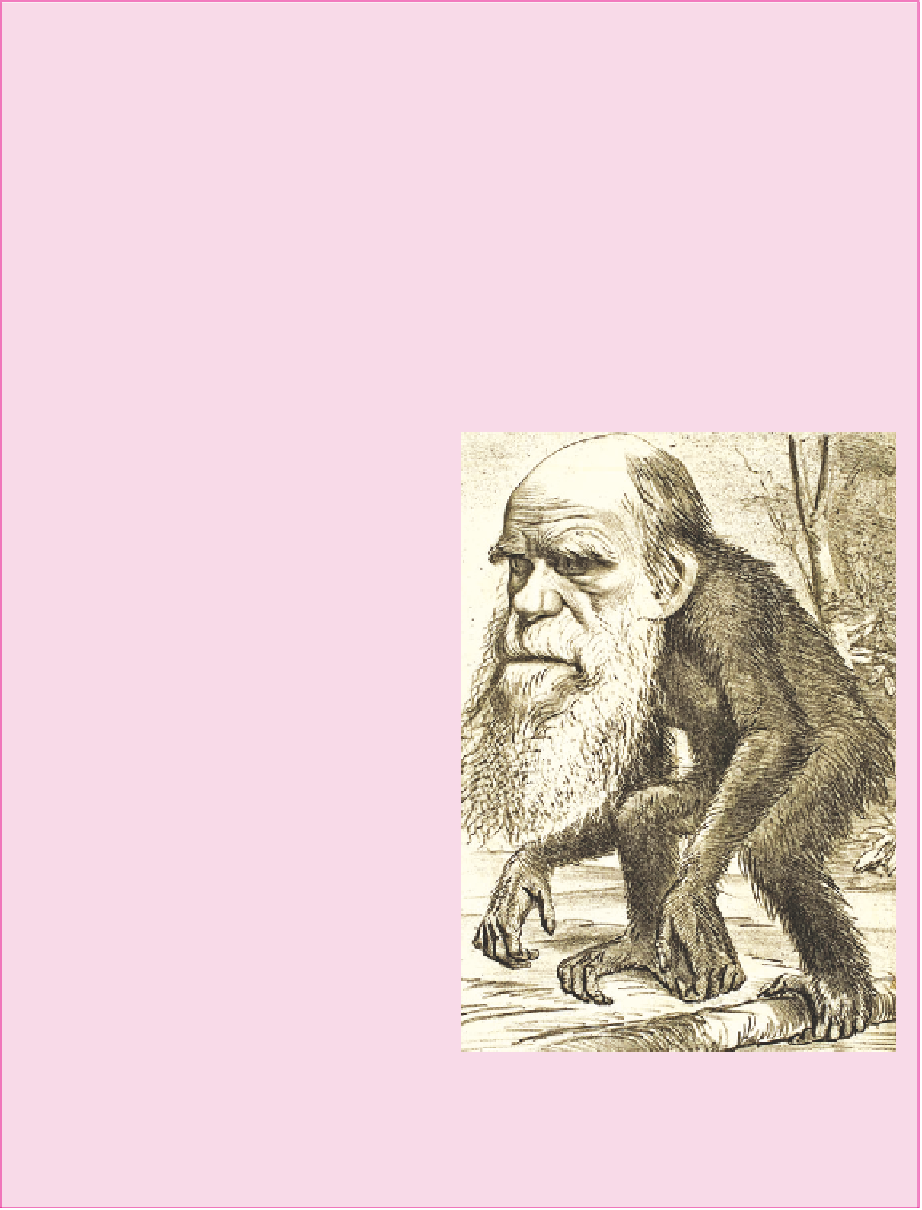Geoscience Reference
In-Depth Information
Charles Darwin was a naturalist who was born on 12 February 1809. By the time of his death in 1882,
his scientific ideas had transformed the ways in which humans thought about themselves and their
place in the world. Darwin's life was transformed by a voyage around the world that he made on
the HMS Beagle. The observations of flora and fauna that Darwin made on this trip lay the foundations
for his theory of natural selection, or the ways in which certain species thrive and prosper, while
others suffer and fade. Darwin set out his ideas in a series of papers and topics, the most prominent
of which were The Origin of the Species (1859) and The Descent of Man (1871). At the heart of
Darwin's theory of natural selection was the idea that life on Earth was essentially a struggle for
existence. According to Darwin, the species, like humans, who survive and prosper do so on the
basis of their ability to adapt and respond to the opportunities and constraints that are placed on
them by the environments in which they live. Darwin's theories proved controversial because they
suggested that humans had evolved as a species over much longer periods of geological time than
were suggested in the Bible and had most probably descended from simian species.
Although Darwin's ideas had a significant
impact on early geographical thought, its
connections with environmental determinism
(or the ways in which people and societies are
shaped by their environments) has resulted in
it becoming somewhat marginalized within the
contemporary discipline (Castree, 2009). In
relation to our discussions of the Anthropocene,
Darwin's work is important because it has
helped to define a powerful framework in and
through which the human transformation of
the natural environment has been explained
and justified. In Darwinian terms, for example,
it is possible to interpret the human use and
exploitation of nature as part of a competitive
struggle with other forms of life for the limited
resources available on Earth. Darwin's theories
are, however, also open to other forms of
interpretation. The emphasis that Darwin places
on the ability of successful species to evolve
and adapt to their environment also indicates
that survival is partly based upon developing
intricate balances between species and the
ecosystems within which they live.
Source: Wikimedia Creative Commons
Key readings
Darwin, C. (1998 [1859]) The Origin of the Species,
Wordsworth Editions, Ware, Herts
Darwin, C. (2004 [1871] The Descent of Man, Penguin, Harlow, Essex

